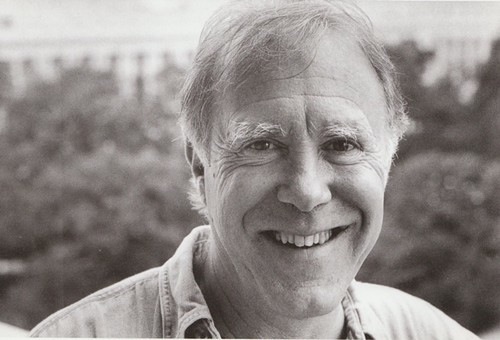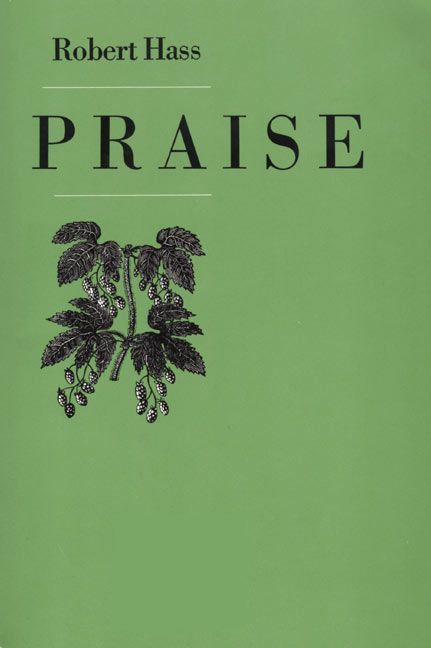All the new thinking is about loss.In this it resembles all the old thinking.The idea, for example, that each particular erasesthe luminous clarity of a general idea. That the clown-faced woodpecker probing the dead sculpted trunkof that black birch is, by his presence,some tragic falling off from a first worldof undivided light. Or the other notion that,because there is in this world no one thingto which the bramble of blackberry corresponds,a word is elegy to what it signifies.We talked about it late last night and in the voiceof my friend, there was a thin wire of grief, a tonealmost querulous. After a while I understood that,talking this way, everything dissolves: justice,pine, hair, woman, you and I. There was a womanI made love to and I remembered how, holdingher small shoulders in my hands sometimes,I felt a violent wonder at her presencelike a thirst for salt, for my childhood riverwith its island willows, silly music from the pleasure boat,muddy places where we caught the little orange-silver fishcalled pumpkinseed. It hardly had to do with her.Longing, we say, because desire is fullof endless distances. I must have been the same to her.But I remember so much, the way her hands dismantled bread,the thing her father said that hurt her, whatshe dreamed. There are moments when the body is as numinousas words, days that are the good flesh continuing.Such tenderness, those afternoons and evenings,saying blackberry, blackberry, blackberry.
Meditation at Lagunitas
Feature Date
- July 15, 2019
Series
- What Sparks Poetry
Selected By
Share This Poem
Print This Poem
Robert Hass, “Meditation at Lagunitas” from Praise.
Copyright © 1979 by Robert Hass.
Reprinted by Poetry Daily with the permission of HarperCollins Publishers, Inc.

Robert Hass was born in San Francisco. His books of poetry include The Apple Trees at Olema (Ecco, 2010), Pulitzer Prize and National Book Award winner Time and Materials (Ecco, 2008), Sun Under Wood (Ecco, 1996), Human Wishes (1989), Praise (1979), and Field Guide (1973), which was selected by Stanley Kunitz for the Yale Younger Poets Series. Hass also co-translated several volumes of poetry with Nobel Laureate Czeslaw Milosz and authored or edited several other volumes of translation, including Nobel Laureate Tomas Tranströmer’s Selected Poems (2012) and The Essential Haiku: Versions of Basho, Buson, and Issa (1994). His essay collection Twentieth Century Pleasures: Prose on Poetry(1984) received the National Book Critics Circle Award. Hass served as Poet Laureate of the United States from 1995 to 1997 and as Chancellor of the Academy of American Poets. He lives in California with his wife, poet Brenda Hillman, and teaches at the University of California, Berkeley.
Poetry Daily Depends on You
With your support, we make reading the best contemporary poetry a treasured daily experience. Consider a contribution today.




